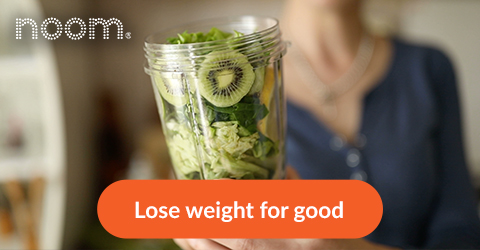For years there was a buzz of excitement around wearable fitness trackers. Even though that has recently waned a bit for companies like Fitbit, they still shipped out over 13 million units last year.
My wife bought one a few years ago, believing that it would motivate her to take daily jogs and hit her goal of 10k steps a day. For a while it was fun, and she’d often report to me, “yay, I got my ten thousand steps in!” Sometimes that would end up being an excuse for why she could then indulge in dessert or wine, which seemed like a nice reward.
Then, there were the occasional times I’d see her walking around in circles in the kitchen at night because she was “soooo close to getting my 10 thousand steps!”
Yes, literally, and metaphorically, “running in circles.”
But, then about 6 months later she gave up counting steps. It seems her “FitBit phase” ended faster than her “ukulele phase,” and the FitBit now resides in the back of a drawer next to a bunch of pens, rubber bands, and an old iPhone charger.
Apparently, my wife was among the majority of people who eventually lose interest, and abandon their fitness trackers completely.
So, how did excitement and optimism over this fitness gadget turn into apathy? I mean, in theory, fitness trackers make a lot of sense.
Fitness trackers seem like a useful tool for measuring your activity, and if you meet your step, laps, or mileage goals, the math infers that you’ll see results. (Plus, you might get little Pavlovian beeps and rewards along the way to condition you for success!)
Studies Prove that Fitness Trackers Alone Don’t Work

In reality, it seems that fitness trackers don’t work. (study) There’s really no data out there to support the idea that they are drivers of weight loss or fitness. Ironically, people who don’t wear fitness trackers seem to actually have better success. (study)
Why is that?! Well, it seems that gadgets that simply spit out information about your activity are missing the point.
They make the data itself the focus, so info like your “number of steps,” “heart rate,” and “hours slept” becomes your measure of success.
Did I hit my 10,000 steps today? If not, then I guess I failed.
When people focus on these details, they don’t see the big picture, which is why fitness trackers and fad diets can actually be counterproductive.
*Related: Do You Still Need a Nutritionist in the Age of Apps?
It’s not all bad news though, as fitness trackers can be an effective ingredient in the larger recipe for wellness. Noom, a popular and always “trending” wellness app, believes that fitness trackers can be successful tools; but only if they’re part of a complete weight loss solution. That’s why the Noom app syncs with a myriad of popular tracker apps, including FitBit, on iOS and Android.
Using a fitness tracker for weight loss misses the mark in a few key areas. Here are 3 components that Noom incorporates for a more successful, holistic approach to weight loss and wellness:
1. Behavioral Change
“I’m starting with the man in the mirror,
Man in the Mirror, Michael Jackson
I’m asking him to change his ways
And, no message could have been any clearer
If you want to make the world a better place
Take a look at yourself and then make that change!”
I’m getting gray hair, so now I’m qualified to dispense wisdom. Here goes: One thing I’ve learned in life is that quick fixes don’t work. Whether it’s a leak in your basement, your smoking habit, or that 20 pounds of baby weight you want to lose, “band-aids” are ineffective. (Unless they are on your kid’s knees; we go through a lot of them!)
According to Noom, sustainable weight loss is about, “education, self-awareness, practice, and hard work to overcome psychological barriers and develop healthy habits.”
When you rely on a gadget, you are not an active participant in your wellness journey. You’re hoping that a product will provide a simple solution for a complex challenge, and that won’t work.
Looking back on my wife’s narrow goal of “hitting 10k steps,” to reach a fitness goal, this idea makes a lot of sense!
2. Support Networks

“You just call on me brother, when you need a hand
Lean on Me, Bill Withers
We all need somebody to lean on
I just might have a problem that you’ll understand
We all need somebody to lean on”
Studies have found that middle-aged men enjoy quoting old songs. They’ve also found that weight loss is more effective with the support of a group. We are social by nature, and often struggle when we try going it alone. WW realized this decades ago by making meetings a crucial part of their program. However, times have changed, and a lot of us don’t want to walk into a room of strangers for support.
Noom now provides a more convenient and modern support network through their app; connecting you with coaches and small groups of people who are on a similar journey as you.
3. Goal Setting
Focusing on a narrow goal like, “number of steps,” can be a road to nowhere. That’s because most fitness trackers don’t put that goal into context. How do those steps relate to the larger long-term “how” and “why” goals?

Now, if you are hiking the Appalachian Trail, then those steps might be a good way to measure your progress.
However, weight loss isn’t a linear journey. There’s so much more to consider, including both physical and psychological components!
Conclusion:
Studies show that gadgets like fitness trackers don’t work for sustainable weight loss. That’s because they are at best only a tool in a broader program. However, they are beginning to become more relevant as wellness programs, like Noom, integrate them into their more comprehensive programs.
We recently wrote an article applauding Noom’s recipe for sustainable weight loss, which is revolutionizing the diet wellness industry. Frustrated with fitness trackers or diets that ask you to go it alone? We’re happy to recommend the Noom app which includes all of the elements above. (we tried it, too!)
If you want to learn more, read our review, or check out their free 30-second evaluation, which ends in an offer for a 14-day trial:
If you want more inspiration, we’ve also compiled some info on the cost of Noom, plus before and after pics, and testimonials from real users.

